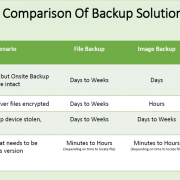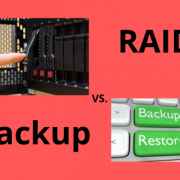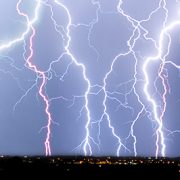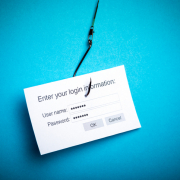Overcoming “little disasters” with your BDR plan
One nice thing about backup and disaster recovery plans is that they’re helpful in situations that aren’t exactly devastating. Take a power outage or snow day, for example. It’s unlikely that either one could ruin your business the way that a cyberattack, fire or earthquake might.
Still, a power outage can be mighty inconvenient and even potentially crippling, depending on the situation. It’s important to plan ahead for these types of little disasters so the business stays productive.
Continuity of operations
Telecommuting, or remote work, is a key element of many BDR plans. Employees can work from home and provide continuity of operations when doing so isn’t possible at the physical office.
A BDR plan helps your company put the necessary telecommuting infrastructure in place before disaster strikes. For instance, if a small business has no BDR plan and tells its employees to work from home, many potential issues could crop up.
To name just a few:
- Vague employee and employer expectations
- Employees who don’t have the right internet service, computers or other equipment at home
- Children who may be in the house and distracting employees
- Employees who would rather take a snow day
- Customers who call the landlines at the business
- Policies for employees using their own mobile devices to work
- Employees using public WiFi networks to work on sensitive data
- A lack of access to files and collaboration tools
A well-crafted plan minimizes or eliminates many of these issues.
For example, one way for your business to ensure continuity of operations is by having IT folks set up cloud computing services. They enable employees to work from anywhere and to collaborate with one another in real time.
Even if it seems that your business operations don’t naturally lend themselves to offsite work, there are moves you can take. For example, Delta established new protocols among other steps after severe storms cost the airline $125 million.
Data protection and recovery
Data can disappear at the most horrible times. When you were in high school, maybe you spent hours typing a paper but forgot to save the file. Then you accidentally closed the paper and lost much of that hard work.
When data loss happens to a business, the consequences can be far-reaching and devastating. A power outage has the potential to zap your data forever. Even if it doesn’t, the outage can render programs nonfunctional and reduce the lifespan of your equipment.
With a BDR plan, you establish a system for better protecting your equipment from outages. Your precautions might include things as simple as surge protectors, backup battery system and power generators. But you’ll also want more advanced protection, like a thorough plan for backing up all critical company data on a regular basis.
A power outage may affect 70 percent of businesses in a year. Your BDR plan ensures your business can withstand outages and quickly get back on its feet.
Your BDR plan and the financial bottom line
It’s critical that your employees, clients and customers trust your business. If a mere snow day or power outage sends the business scrambling and flailing, that doesn’t bode well for employee morale or for customer satisfaction.
Plus, your business could sustain financial losses. For example, say three of your employees are set to give a presentation in two days at a potential client’s site. However, because of a little disaster, these employees can’t come into the office. They can’t collaborate and access key files.
With a BDR plan, they wouldn’t need to be in the office to keep working on the presentation. There’s every reason to believe that the presentation would go off just as smoothly as if no little disaster occurred.
End result: You land that potential client.











